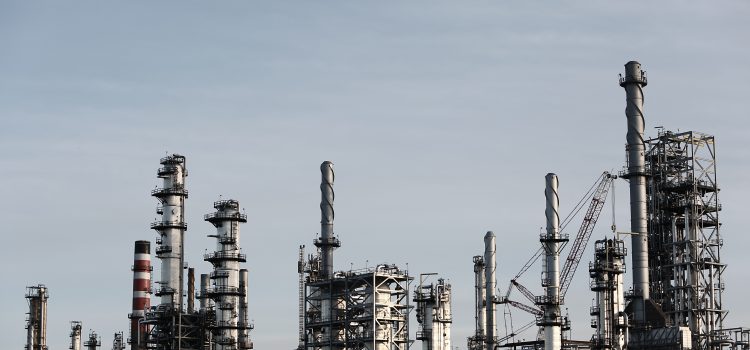
The 2020 International Energy Agency (IEA) report has warned that the surging oil and gas production, driven by booming profits, is failing to address methane emissions from such practices. The IEA estimates that 75 million tonnes of methane escape from oil and gas operations each year, which is a significant contributor to climate change. This number could be reduced if more stringent regulations were put in place but, as yet, there appears to be little appetite for this by the industries concerned. In this blog post, we’ll explore the issues surrounding the energy industry’s failure to tackle methane emissions and what can be done about it.
The IEA’s warning about the energy industry’s methane emissions
Despite the industry’s booming profits, the International Energy Agency (IEA) has warned that the energy sector is failing to adequately tackle methane emissions. In a new report, the IEA warns that methane emissions from the energy sector are set to rise by 20% over the next five years unless urgent action is taken.
The IEA attributes this increase in emissions to the growing use of natural gas, which is “often associated with higher methane leakage rates than other fossil fuels.” The agency notes that while gas is often touted as a cleaner alternative to coal and oil, its climate benefits are “significantly reduced” when leaks are taken into account.
The IEA urges governments to put in place policies to incentivize companies to reduce their methane emissions, warning that without such action, the growth in emissions will “undermine progress made on reducing carbon dioxide emissions.” The agency also calls for increased monitoring of methane leaks, and for companies to disclose their emissions data.
The booming profits of the energy industry
Despite booming profits, the energy industry is failing to tackle methane emissions, IEA warns. In its annual World Energy Outlook report, the International Energy Agency (IEA) said that while the oil and gas sector had profited from higher prices and production in recent years, it had done little to reduce methane emissions.
The IEA warned that methane – a far more potent greenhouse gas than carbon dioxide – was “squeezing out” other emissions reductions in the fight against climate change. It said the boom in shale gas production had been a key driver of increased methane emissions in the United States.
“The energy industry’s record on reducing methane emissions is abysmal,” saidFatih Birol, the IEA’s executive director. “It is time for companies to clean up their act.”
The IEA said that while there had been some progress in reducing flaring – the burning off of excess gas – this had been offset by increases in other sources of methane, such as venting and leaks. It called on governments to set tougher regulations and for companies to do more to reduce their emissions.
The energy industry’s failure to tackle methane emissions
Despite the industry’s booming profits, the International Energy Agency (IEA) has warned that the energy sector is failing to adequately tackle methane emissions.
Methane, a key component of natural gas, is a potent greenhouse gas with a global warming potential (GWP) of 25 over a 100-year period. The IEA estimates that the energy industry is responsible for around 40% of global methane emissions.
The agency has urged the sector to do more to cut methane emissions, warning that they could “derail” efforts to meet climate change goals. In its World Energy Outlook 2019 report, the IEA said that current policies and measures are not enough to prevent a significant increase in methane emissions from the energy sector by 2030.
The IEA has called for a number of measures to be taken in order to reduce methane emissions from the energy sector. These include:
– Improving monitoring and reporting of methane emissions
– Reducing venting and flaring of methane during oil and gas production
– Implementing leak detection and repair programs for natural gas pipelines and storage facilities
– Capturing methane emissions from coal mines
The impact of methane emissions on the environment
Methane emissions from the energy industry are a major problem. The IEA warns that unless steps are taken to reduce these emissions, they will have a significant impact on the environment.
Methane is a powerful greenhouse gas, and its emissions contribute to climate change. In addition, methane emissions can also cause air pollution and smog. This can lead to respiratory problems, and can also contribute to the formation of ozone holes.
The IEA has called on the energy industry to take steps to reduce methane emissions. However, it warns that unless action is taken soon, the environmental impacts of methane emissions will become increasingly severe.
What needs to be done to reduce methane emissions
Despite the energy industry’s booming profits, a new report from the International Energy Agency (IEA) warns that it is failing to adequately tackle methane emissions. The IEA’s World Energy Outlook 2017 states that global methane emissions from the energy sector have risen by almost 10% since 2000, and are now equivalent to the annual emissions of China and the United States combined.
Methane is a far more potent greenhouse gas than carbon dioxide, with a global warming potential of over 80 times that of CO2 over a 20-year timeframe. The majority of methane emissions come from the oil and gas industry, with leaks and flaring during production accounting for the lion’s share. Coal mining is also a significant source of methane emissions.
Reducing methane emissions from the energy sector is essential if we are to meet our climate change goals. The IEA estimates that halving methane leaks from the oil and gas industry would have the same climate impact over the next two decades as shutting down all coal-fired power plants in China. Addressing coal mine methane could have an even bigger impact, cutting total energy sector methane emissions by one-third.
The good news is that there are cost-effective ways to reduce methane emissions, and many companies are already taking action. For example, ExxonMobil has reduced its own company-wide methane emissions by 15% since 2016 through measures such as detecting and repairing leaks, capturing escaping gas at wellheads, and reducing venting during routine maintenance operations
Conclusion
The International Energy Agency’s latest warning of unchecked methane emissions should be a wake-up call for the energy industry and governments alike. Without increased collaboration and proactive steps taken to reduce these emissions, we are headed down a path of further environmental degradation with serious long term consequences. It is therefore essential that governments mandate stricter regulations while incentivising companies, particularly those in the oil and gas sector, to become more sustainably focused if we are to avoid an untenable future.











I love reading an article that can make people think. Also, thank you for allowing for me to comment!
There’s certainly a great deal to find out about this issue. I really like all the points you have made.
I needed to thank you for this very good read!! I definitely enjoyed every little bit of it. I have got you book-marked to look at new things you post…